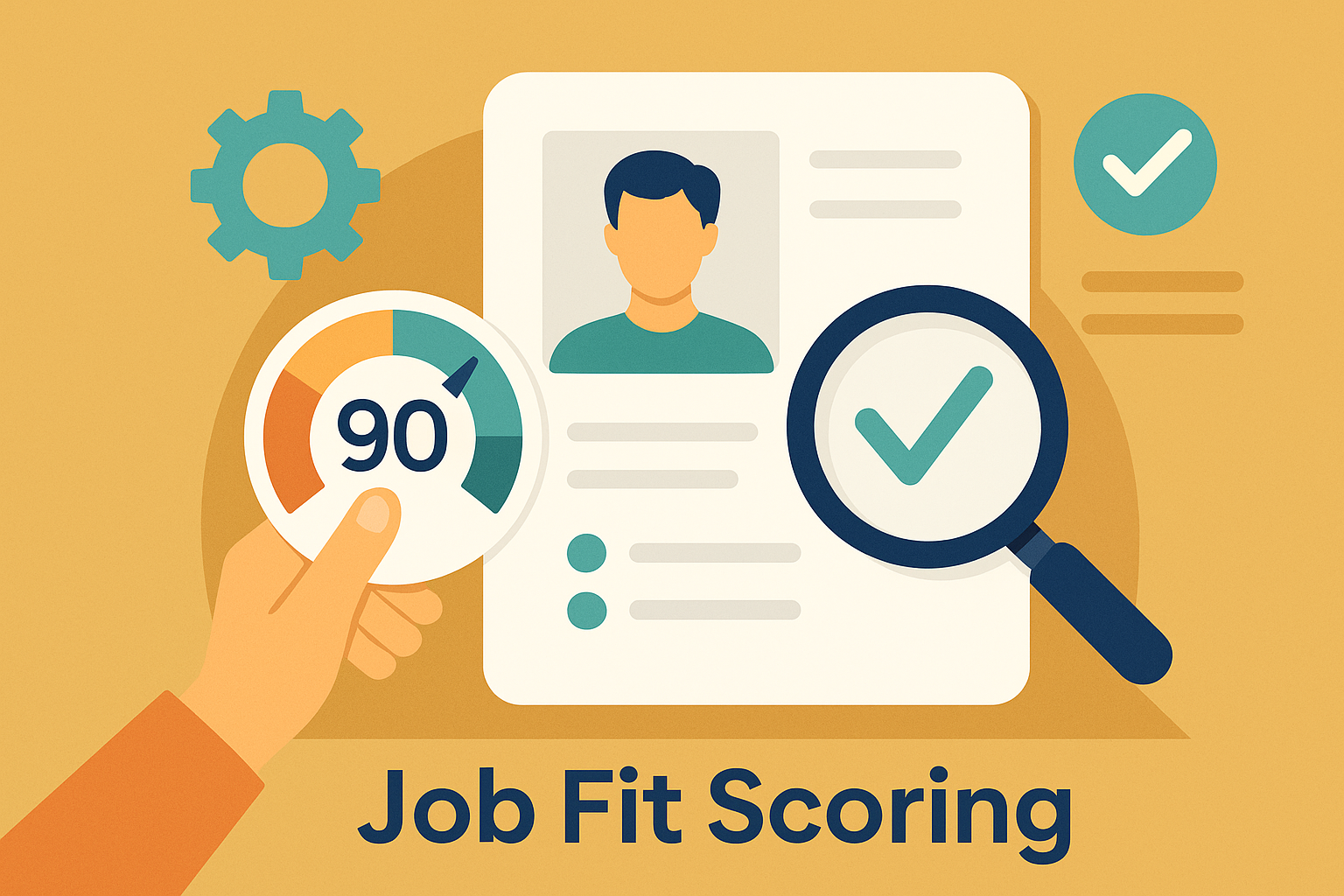What is Job Fit Scoring? | HR Glossary Explained
What is Job Fit Scoring?
Job Fit Scoring is a structured approach used in recruitment to evaluate how well a candidate's skills, experience, personality, and values align with the requirements and culture of a specific role and organization. It involves assigning a numerical score or rating based on predefined criteria, helping recruiters make more objective and data-driven hiring decisions.
By quantifying "fit," employers can prioritize candidates who are most likely to succeed, stay longer, and positively contribute to team dynamics and organizational goals.
Why is Job Fit Scoring Important?
Job fit scoring helps organizations to:
Improve Quality of Hire: Align candidates closely with role requirements and company culture.
Reduce Hiring Bias: Standardize evaluations based on objective factors.
Streamline Screening: Quickly identify top candidates from large applicant pools.
Enhance Retention Rates: Candidates who fit well are more likely to be satisfied and committed.
Strengthen Predictive Hiring: Use historical data to refine fit models and improve future hiring outcomes.

Key Components of Job Fit Scoring
Skills and Competency Matching: Alignment between candidate skills and job-specific competencies.
Experience Relevance: Assessment of professional background in relation to role demands.
Cultural Fit: Evaluation of values, work style, and team dynamics compatibility.
Behavioral Traits: Analysis of personality characteristics related to role success.
Motivational Fit: Understanding a candidate's career goals and intrinsic motivators.
How to Implement Effective Job Fit Scoring
Define Role-Specific Criteria: Clearly identify essential skills, experiences, and cultural attributes.
Develop a Scoring Rubric: Assign weightings to different evaluation areas (e.g., skills 40%, cultural fit 30%).
Use Structured Interviews and Assessments: Gather consistent, comparable data.
Leverage Technology: Utilize ATS systems and AI tools to automate and support scoring.
Continuously Refine Scoring Models: Adjust based on feedback and hiring success metrics.
How Job Fit Scoring Integrates with Broader Recruitment Strategies
Job fit scoring plays a vital role in:
Candidate Screening: Providing a quantifiable method to shortlist candidates.
Pre-Employment Assessments: Informing scoring through cognitive, skills, and personality tests.
Talent Pipeline Management: Organizing candidates by fit scores for future opportunities.
Diversity Hiring Initiatives: Offering a structured way to focus on capability over subjective impressions.
FAQ About Job Fit Scoring
Q1: Can job fit scoring replace interviews?
No. It complements interviews by adding a data-driven layer but cannot fully capture nuances like interpersonal chemistry.
Q2: How do you avoid bias in job fit scoring?
Use standardized scoring rubrics, blind evaluation techniques, and validated assessments.
Q3: What tools can help with job fit scoring?
Applicant Tracking Systems (ATS), AI-powered candidate evaluation platforms, and customized assessment software.
Related Terms You Might Find Useful
HR Glossary: Master the Language of Modern HR
Explore More: Learn how MokaHR empowers organizations to implement intelligent Job Fit Scoring and data-driven hiring with its AI-enhanced recruiting solutions. Request a Demo today!
Final Thoughts
Job fit scoring transforms hiring from an art into a science. By embedding structured evaluation methods into the recruitment process, organizations can not only hire faster and smarter but also build stronger, more cohesive, and higher-performing teams.
From recruiting candidates to onboarding new team members, MokaHR gives your company everything you need to be great at hiring.
Subscribe for more information

